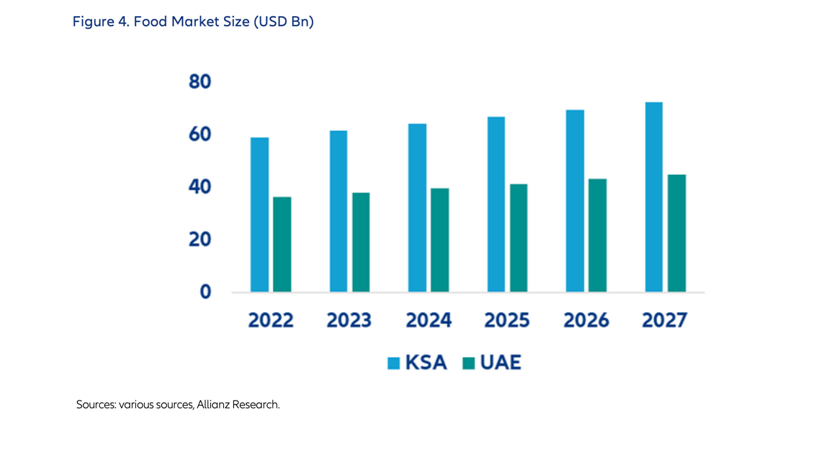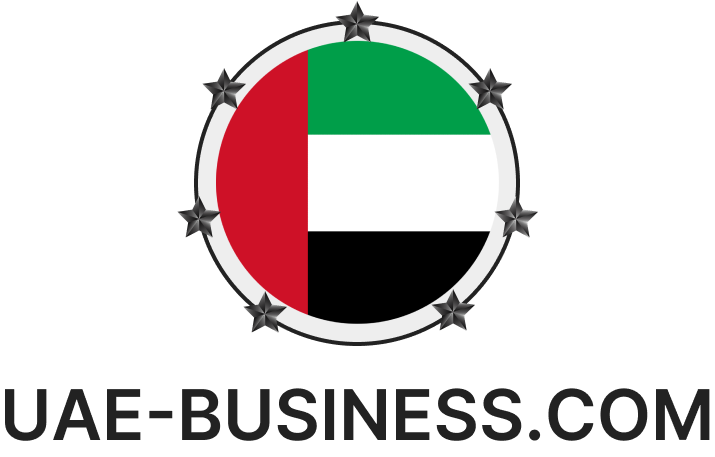GCC agri-food sector to reach $120 billion by 2027
Allianz Trade, the worldwide leader in trade credit insurance has recently published the “Agrifood Outlook 2023” highlighting the sector growth despite supply tensions and the conflict in Ukraine. The global agrifood market has grown significantly, rising from 8.28 USD trillion in 2021 to 8.67 USD trillion in 2022, and is projected to reach 9.43 USD trillion in 2023 and about 12 USD trillion by 2027 (i.e. an expected +6% CAGR over 2023-2027).
“This growth is driven by a number of factors such as population growth, technological advancements, and also shifting consumer preferences. The ongoing war in Ukraine has added new challenges and uncertainties for firms in the sector, however despite declining volumes, the non-reductible nature of food products allowed them to compensate lower volumes with higher sales prices, – said Ano Kuhanathan, Head of Corporate Research Allianz Trade.
Despite inflation that is expected to remain moderately high in 2023 (+3.5% in the UAE, +2.7% in KSA) and as the region’s GDP is should continue to grow robustly (+2.7% in the UAE, +3.8% in KSA), the agrifood market in the GCC countries, which accounted for about 100 USD billion in 2022, should continue to expand and pass the 120 USD billion threshold by 2027.
The Middle East vertical farming market is projected to grow at a CAGR of 23.4% until 2026 as the aquaculture market is projected to grow at a CAGR of 5.3% in the same time span. Both Saudi Arabia and the UAE are focusing on food innovation and R&D to address food security challenges and develop the agrifood sector. The UAE has established the Food Security Center Abu Dhabi and Dubai’s International Center for Biosaline Agriculture to drive research and innovation in food production.
The UAE’s National Food Security Strategy 2051 focuses on enhancing local food production and diversifying food import sources. The UAE has allocated AED 1 billion (approximately USD 272 million) to the AgTech Innovation Program to transform the country’s agriculture sector through innovation and technology.
Jean Claus, CEO, Allianz Trade Middle East, said: “The agrifood market in the GCC region is characterised by its heavy reliance on imports, focus on food security, and increasing investments in agritech and sustainable food systems.” He added “As both Saudi Arabia and the UAE import around 80 – 90% of their food requirements due to arid climate conditions and limited arable land, the region’s food import dependency has driven its focus on strengthening food security and diversifying its sources of supply.”
Saudi Arabia has also invested in agritech projects as part of its Vision 2030. Both countries are increasingly adopting vertical and controlled-environment agriculture to address challenges like limited arable land and water scarcity. The Middle East vertical farming market is projected to grow at a CAGR of 23.4% until 2026, aquaculture market is projected to grow at a CAGR of 5.3% in the same times pan. Both Saudi Arabia and the UAE are focusing on food innovation and R&D to address food security challenges and develop the agrifood sector.

Photo: Jean Claus, CEO, Allianz Trade Middle East.
